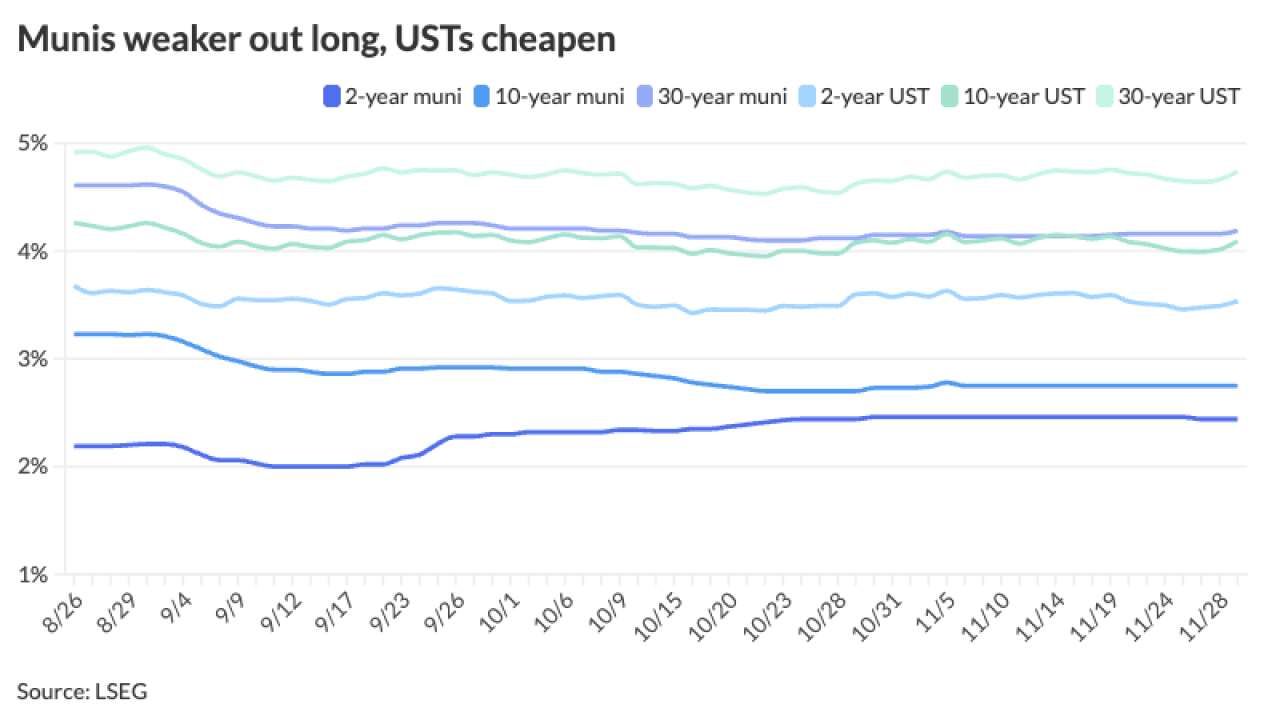
A United States government argument in a criminal case being heard by the U.S. Supreme Court may backfire, leaving the U.S. responsible for paying Puerto Rico's debt, a prominent Puerto Rico Senator said.
On its surface, the case of Commonwealth of Puerto Rico v. San Luis M. Sanchez Valle has nothing to do with Puerto Rico's debt. The Supreme Court must decide whether the double jeopardy doctrine prevents Puerto Rico from charging Jaime G-mez Vásquez and Sánchez Valle with the illegal sale of guns, after they were found guilty by a Federal Court.
On Dec. 23 U.S. Solicitor General Donald Verrilli Jr. submitted an amicus curiae, or advisory opinion, on behalf of the U.S. federal government in the case. He wrote that the decision would not only affect federal enforcement of federal criminal laws in Puerto Rico but "may affect the federal government's defense of federal legislation and policies related to Puerto Rico across a broad range of substantive areas, including congressional representation, federal benefits, federal income taxes, bankruptcy, and defense."
The federal government's argument may have an unintended effect, according to Puerto Rico Sen. José Nadal Power. Nadal Power is chairman of the Puerto Rico Senate Committee on Treasury and Finance and a member of the same party as Puerto Rico Gov. Alejandro García Padilla.
Nadal Power believes that if the U.S. Dept. of Justice position "prevails and therefore Puerto Rico has no internal sovereignty, the Commonwealth might be as a result impaired to provide sovereign guarantee to its general obligations, making the federal government a default co-guarantor since the only remaining sovereignty on the island would be the federal sovereignty," a Nadal Power spokeswoman wrote in an email.
She added that Nadal Power believes that Puerto Rico does have sovereignty and therefore the Dept. of Justice argument is wrong.
In the case before the Supreme Court, a federal court found the defendants guilty of the illegal sale of guns and sentenced them to five months imprisonment. A commonwealth trial court dismissed the commonwealth's similar charges, citing the double jeopardy doctrine, which says that a government cannot try someone on the same charge twice.
Verrilli argued that states and Indian tribes have substantial independence from the federal government that can be described by the word "sovereignty."
In the United States a state can charge someone with a crime even after federal prosecutors have already tried the person for the same offense. This is because the state is considered fairly autonomous from the federal government and thus enjoying sovereignty. It is considered a separate government.
In this case Sánchez Valle and G-mez Vásquez argued that Puerto Rico lacked sufficient sovereignty to charge them with crimes after the federal government had already found them guilty.
The court of appeals sided with Puerto Rico. Sánchez Valle and G-mez Vásquez appealed this court's decision to the commonwealth supreme court. The higher court said that Puerto Rico was not a separate sovereign from the United States and thus double jeopardy barred local prosecution.
Puerto Rico appealed to the U.S. Supreme Court, which will hear oral arguments on the case on Jan. 13.
U.S. Solicitor General Verrilli quoted the 1990 Supreme Court decision Tafflin v. Levitt, where the court stated, "The states possess sovereignty concurrent with that of the federal government, subject only to limitations imposed by the Supremacy Clause [of the U.S. Constitution]."
While the United States granted Puerto Rico the right to be self-governing in the early 1950s, this has not changed that it is a territory and fundamentally not a sovereign like the states, Verrilli wrote. "United States territories are not sovereigns."
Verrilli cited the 1907 case Grafton v. United States which said that territorial governments could not charge their residents with the same crime that the federal government had already charged them with, because they were not sovereigns and the double jeopardy doctrine applied.
In early November former Puerto Rico Gov. Anibal Acevedo Vitá went further than Nadal Power and explicitly stated that the federal government is responsible for Puerto Rico's debt. In a blog post, Acevedo Vitá, made three arguments for this. First, Puerto Rico sold its debt under a federal law that grants the bonds tax exemption and this encouraged Puerto Rico to borrow a more than reasonable amount. Second, the federal government irrationally kept the right to use Chapter 9 bankruptcy away from Puerto Rico and this had pushed the commonwealth to the cusp of default.
"Finally, and more importantly, there is a legal precedent that suggests that the debt of a territory is also the debt of the United States government," Acevedo Vitá wrote. Acevedo Vitá was governor from 2005 to 2009. He is a member of the same party as the current governor.
According to the El Vocero news web site, when García Padilla was asked about the former governor's blog post on the debt problem, García Padilla refused to comment and instead noted that the government's debt increased rapidly under his predecessor.
In late December García Padilla publicized a letter where he criticized the U.S. government's position that Puerto Rico's government doesn't have sovereignty.
Municipal bond attorney Jim Spiotto disagreed with the argument that the federal government would be legally responsible for Puerto Rico's debt because the territory was considered less than a sovereign. The existence of a sub-sovereign of a sovereign does not mean that the sovereign is responsible for the sub-sovereign's debt, he said.
The Bond Buyer asked Spiotto, managing director of Chapman Strategic Advisors, about a possibly instructive legal parallel – if a parent is legally responsible for the debt of a 10 year old child. Spiotto said courts were divided on this topic.
The federal government should help not by assuming responsibility for the debt but by appointing a control or oversight board, Spiotto said.





